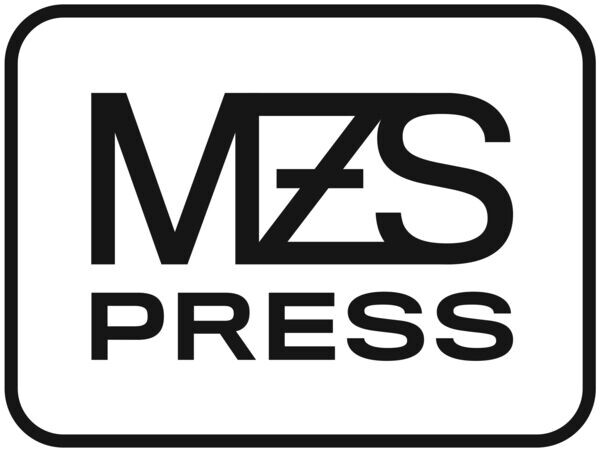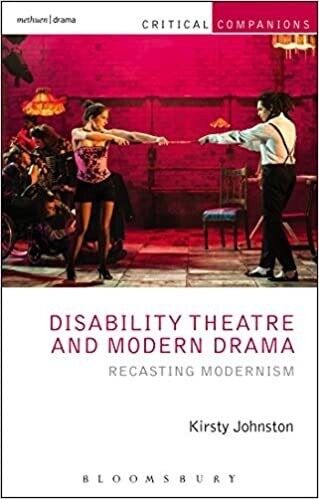

The Arts Bookstore of the Internet
Created by Matt Zoller Seitz
Directed by Judith Carter
“If you only read the books that everyone else is reading, you can only think what everyone else is thinking.”
Haruki Murakami
Photo courtesy Getty Images via Unsplash
Disability Theatre and Modern Drama: Recasting Modernism (Paperback, NEW)
Bertolt Brecht's silent Kattrin in Mother Courage, or the disability performance lessons of his Peachum in The Threepenny Opera; Tennessee Williams' limping Laura Wingfield in The Glass Menagerie and hard-of-hearing Bodey in A Lovely Sunday for Creve Coeur; Samuel Beckett's blind Hamm and his physically disabled parents Nagg and Nell in Endgame – these and many further examples attest to disability's critical place in modern drama. This Companion explores how disability performance studies and theatre practice provoke new debate about the place of disability in these works. The book traces the local and international processes and tensions at play in disability theatre, and offers a critical investigation of the challenges its aesthetics pose to mainstream and traditional practice.
The book's first part surveys disability theatre's primary principles, critical terms, internal debates and key challenges to theatre practice. Examining specific disability theatre productions of modern drama, it also suggests how disability has been re-envisaged and embodied on stage. In the book's second part, leading disability studies scholars and disability theatre practitioners analyse and creatively re-imagine modern drama, demonstrating how disability aesthetics press practitioners and scholars to rethink these works in generative, valuable and timely ways.
Review
“In this highly readable volume, Kirsty Johnson takes seriously the central place of disability within modern theatre. Johnston draws together important theoretical and theatrical insights into the complex commingling of disability and modern drama, powerfully moving beyond reductive approaches that read disability as a metaphor or evaluate representations of disability within a narrow progressive or regressive framework … The result is an excellent, widely applicable work that “recasts” modern drama through creative and contradictory readings of disability history in plays such as Samuel Beckett’s Endgame and Tennessee Williams’s The Glass Menagerie, as well as through analyses of inclusive practices of casting, training, dramaturgy, and design in contemporary theatre productions that engage with accessibility as not only an ethic but as a generative aesthetic.” – TDR: The Drama Review
“A concise overview of the ways in which disability studies can and should fit into new adaptations and analyses of modern drama, in addition to its effects on theatrical practices … Johnston’s cultural and historical knowledge about disability history and activism provides readers with noteworthy examples from scholarship and theatre companies that currently engage with the intersection of modern drama and disability studies. In light of growing involvement and interest in disability theatre today, Johnston’s book is a crucial resource for theatre scholars and practitioners, both those new to disability studies and those already familiar with its applications, who wish to take part in the complex but promising future that disability theatre has to offer.” – Theatre Survey
“In Disability Theatre and Modern Drama, Kirsty Johnston and her collaborators provide indispensable contributions to both theatre studies and disability studies. They incisively demonstrate how attention to disability enriches enduring contestations of both the “modern” and the “drama” of “modern drama” … Disability Theatre and Modern Drama is a timely contribution, remarkable for both its breadth and its depth, including Johnston’s impressive integration of disability theory from Canada, the United Kingdom, the United States, and Australia. Individually and collectively, the book’s chapters are exceedingly teachable and should find their way to classes in modern drama, disability studies, and performance studies. Moreover, historians and theorists of disability theatre and performance, as well as scholars of modern drama more broadly, would do well to heed the book’s numerous prompts for further inquiry.” – Modern Drama
"A valuable, generative book … Johnston has written a book of interest to students, theatre practitioners, scholars, and people who reflect on representation in critical ways or who are interested in considering disability and theatre in tandem … Johnston's work demonstrates the benefits of thinking creatively about how to navigate ableist attitudes and structures. Throughout, she makes a convincing case that disability has a historical role in modern theatre and that attentiveness to disability theatre practices offer creative, compelling choices within this art form. The creative impact of a sustained inquiry into disability theatre is apparent throughout this work; often, the political reverberations are evident as well." – Comparative Drama
About the Author
Patrick Lonergan is Professor of Drama and Theatre Studies at National University of Ireland in Galway.
- Publisher : Methuen Drama (April 21, 2016)
- Language : English
- Paperback : 240 pages
- ISBN-10 : 1408184788
- ISBN-13 : 978-1408184783
- Item Weight : 10.1 ounces
- Dimensions : 5.42 x 0.69 x 8.57 inches
About Our Store
MZS.Press is the online arts bookstore founded by author, critic, and filmmaker Matt Zoller Seitz and Directed by Judith Carter. It offers new, used, signed, collectible, and rare books on film, TV, music, photography, and the visual arts. The store was launched in 2019 on a different platform and has expanded to incorporate arts books published by MZSPress's private imprint: titles currently include Seitz's The Deadwood Bible: A Lie Agreed Upon and Dreams of Deadwood, about the HBO Western, and Walter Chaw's A Walter Hill Film.
Our deepest wish is to promote, encourage, and distribute work by small presses, academic presses, and individuals. Extraordinary work tends to get swallowed up on giant platforms like Amazon and Barnes & Noble. The titles featured here are personally selected by a group of curators and advisors, including Seitz and an array of critics, artists, journalists, educators, publishers, and arts mavens who are known for their ability to suss out what Seitz's jazz musician dad liked to call "the good sh*t."
In Honor of the greatest auteur of our time, Judith is using one of her favorite quotes by him.
"Every day, once a day, give yourself a present"
David Lynch (January 20, 1946-January 15, 2025)

About the Partners

Matt Zoller Seitz
Critic, Author, Filmmaker, MZS Press Creator
Matt Zoller Seitz is the Editor at Large and film critic of RogerEbert.com; Features Writer for New York Magazine and Vulture.com, Contributing Writer for D Magazine and Texas Highways as well as finalist for the Pulitzer Prize in criticism. His writing on film and TV has appeared in Sight and Sound, The New York Times, Salon.com, The New Republic and Rolling Stone. Seitz is the founder and original editor of the influential film blog The House Next Door, now a part of Slant Magazine.
Seitz has written, narrated, edited or produced over a hundred hours’ worth of video essays about cinema history and style for The Museum of the Moving Image, Salon.com and Vulture, among other outlets such as Texas Highways and AARP. His five-part 2009 video essay Wes Anderson: The Substance of Style was spun off into the hardcover book The Wes Anderson Collection. This book and its follow-up, The Wes Anderson Collection: Grand Budapest Hotel were New York Times bestsellers.
Other Seitz books include the New York Times bestsellers The Sopranos Sessions and Mad Men Carousel; TV (The Book), The Deadwood Bible: A Lie Agreed Upon, The Wes Anderson Collection: The French Dispatch and the new The Wes Anderson Collection: Asteroid City. He is also an interviewer, moderator, and film programmer who has curated and hosted film and TV presentations for the Museum of the Moving Image, IFC Center, San Francisco's Roxie Cinema, and other venues. In October 2024 he brought the legendary filmmaker Oliver Stone back to Dallas for a historic return to the city and the Texas Theatre, considered the biggest film event of Dallas in 2024 by Dallas Observer!
Judith Carter was in the Upscale and Luxury Hospitality Industry for most of her life. In 2004 she had a beautiful baby boy with Special Needs and put the pause on her career until 2017 to dedicate herself to him and then others, assisting and volunteering as a legal advocate ensuring the best medical care, evaluations and educations for Special Needs children and their families.
Matt and Judith were family friends for over 20 years. She was there with her family in support when his wife Jen passed away suddenly in 2006. Then just 6 weeks later while Matt was in Dallas; he and his Father, Dave, and Step-Mother, Genie, were there as support, when Judith was alone and her son received the first of many diagnoses that changed the trajectory of their lives. So it made sense in the turbulent year of 2020, Matt asked Judith to take over running the online store that has become MZS.press. The rest as they say is, "Their"-story.
